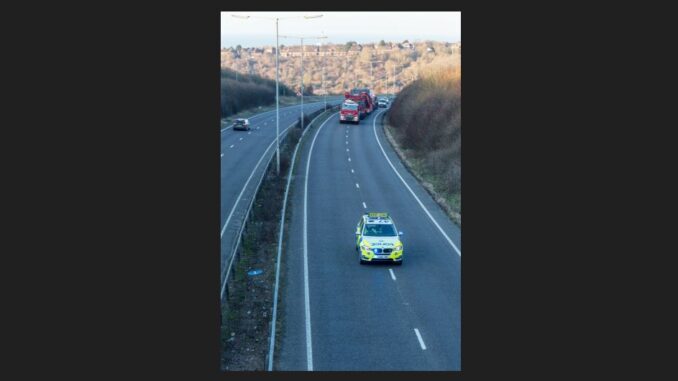
The abnormal loads group (ALG) met with police chiefs to find ways to improve consistency among forces in the way planned movements are escorted, writes Chris Tindall.
ALG said policing of abnormal loads has become increasingly inconsistent, creating challenges for the haulage industry and the sectors it supports including caravans, construction, manufacturing and renewables.
The national police chief’s council (NPCC) and police leaders discussed with the ALG solutions to the issues and how to update national guidance.
The ALG said the NPCC is now encouraging greater consistency and best practice amongst forces and is committed to publishing the updated guidance before the end of the year to assist officers.
It said topics discussed included procedures forces should adopt for notifications, emphasising that anything less than 30-day notifications will impose administrative burdens and delays which will increase risk; the proportionate use of embargoes, particularly on non-notifiable movements; the provision of police escorts and the need for adequate training for abnormal loads officers.
The group described the meeting as ‘a major milestone for the industry’ and that the industry was committed to working with the police to increase compliance and reduce road safety risks.
Research conducted earlier this year and commissioned by the RHA found bureaucracy on abnormal load movements and police enforcing different restrictions was costing the sector £16.8m a year.
Last year, the Heavy Transport Association said around 5% of its members were considering abandoning abnormal load movements due to the costs and difficulties arising from the police enforcing varying movement embargoes.

